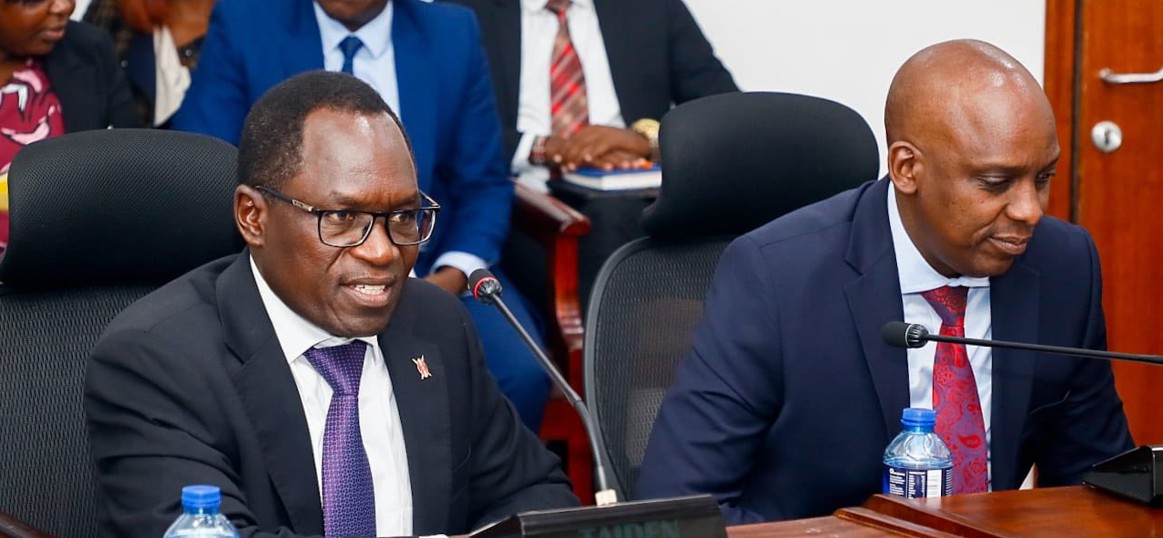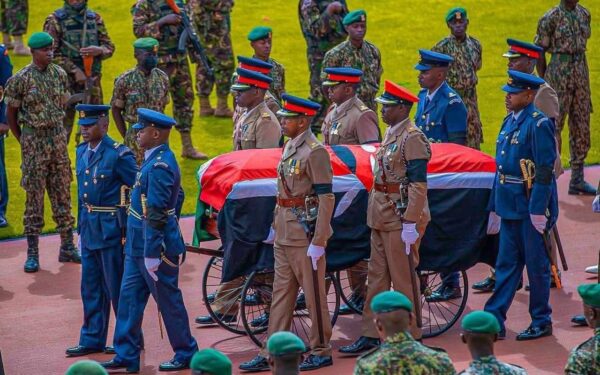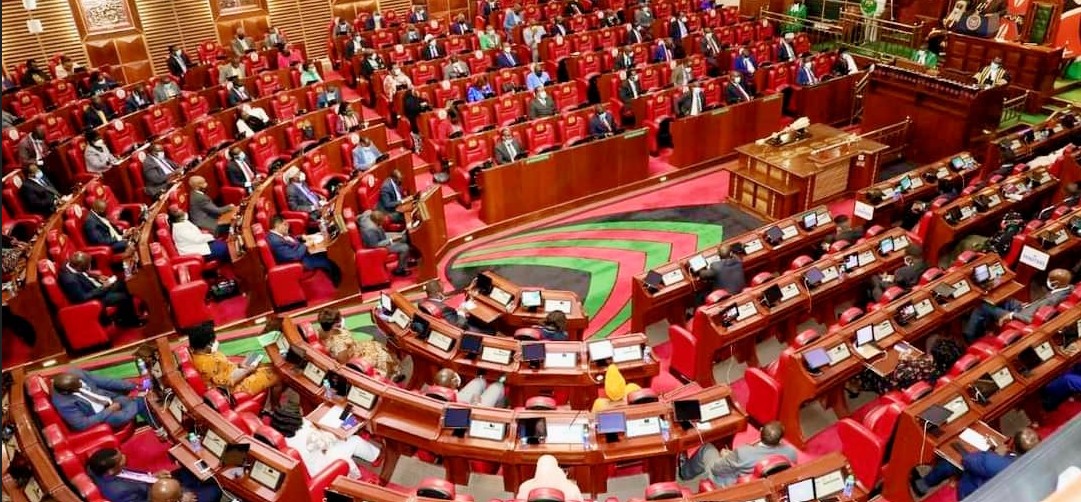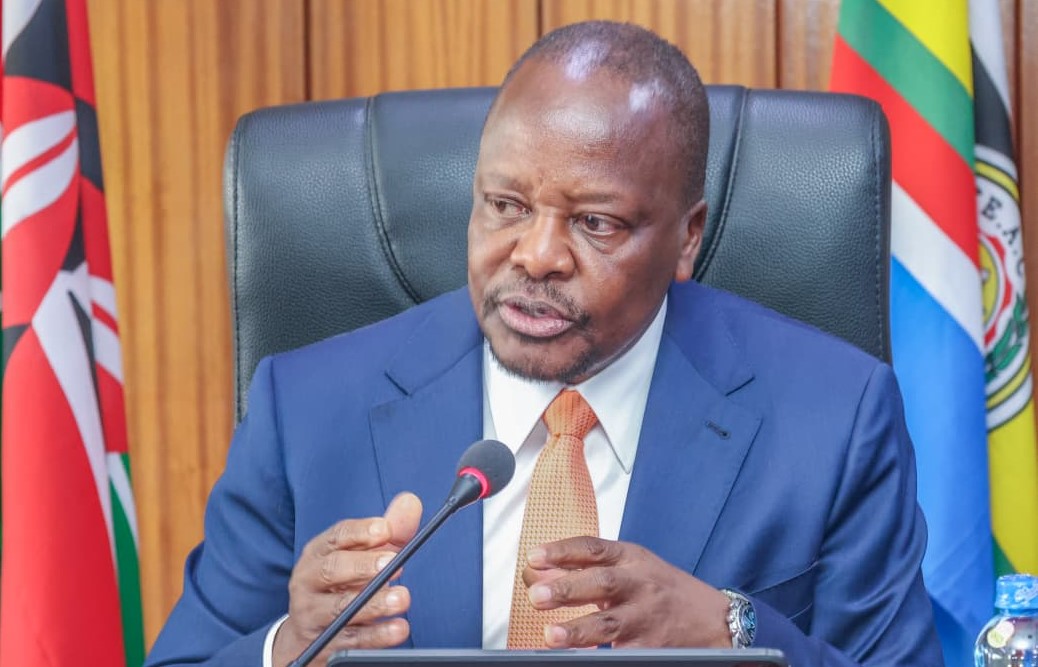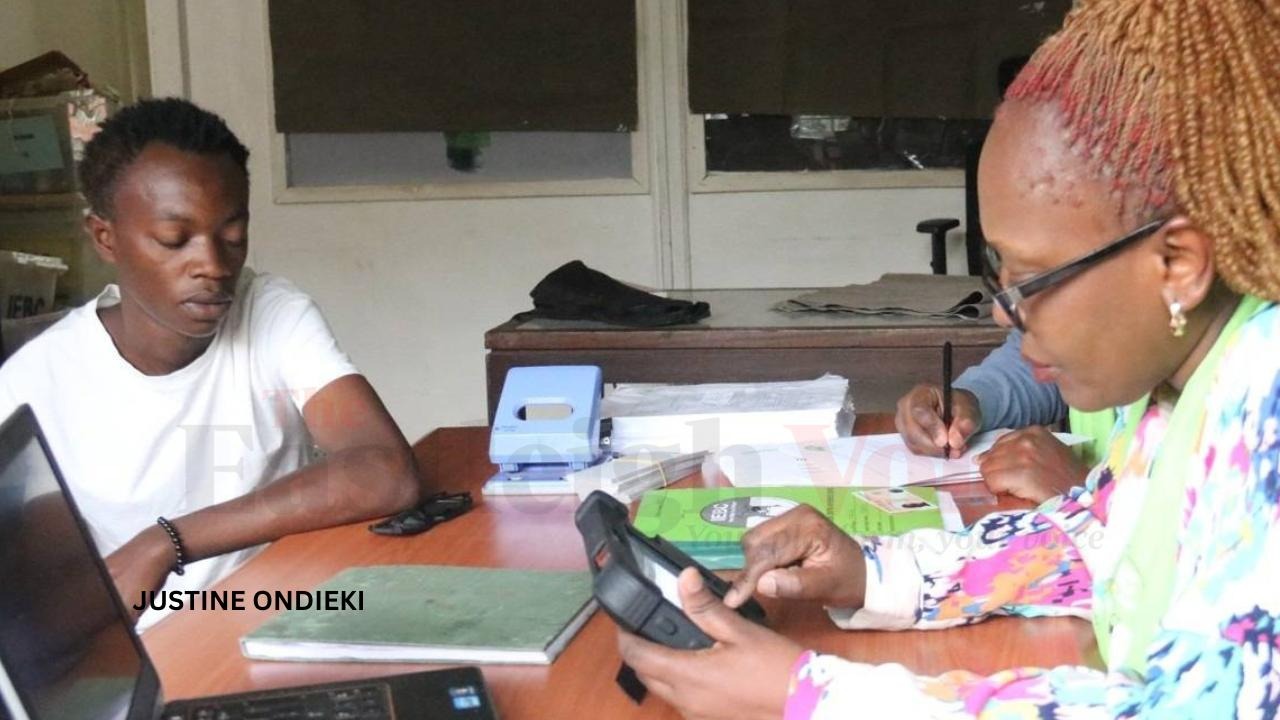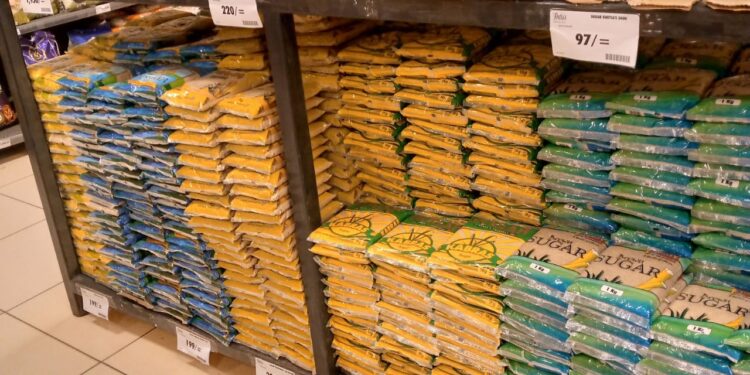Spirited life of Wahu Kaara: A story of determination and struggle for a better society
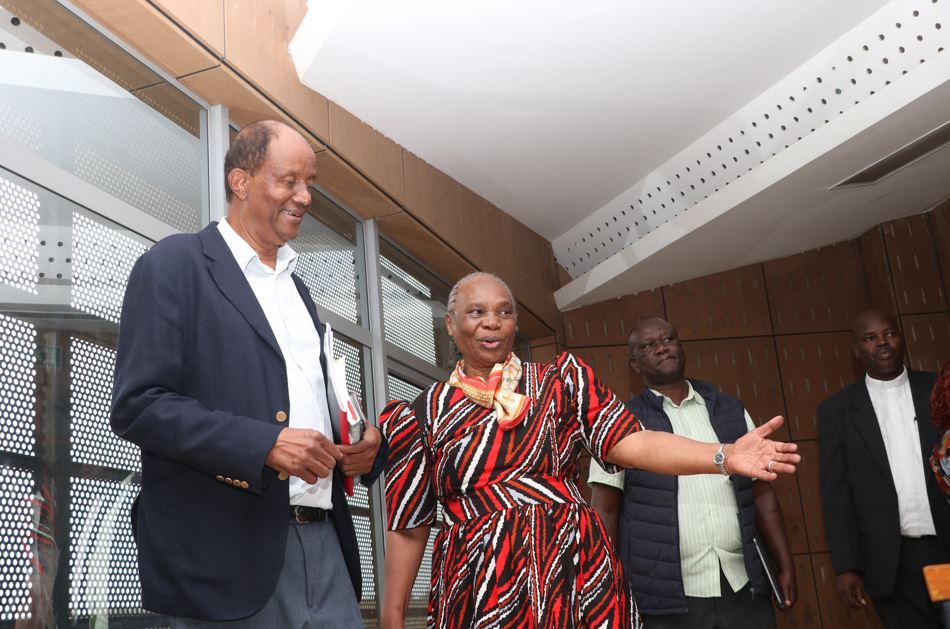
Rebel with a cause! That's the best description that fits her actions from childhood to today.
At a filled auditorium at the University of Nairobi on Thursday afternoon, emotions ran high as the story of Wahu Kaara's struggle for a better society was being told. Determination, valour and unbroken are among the few words that can describe Wahu's long and illustrious life.
George Gona's biography of Wahu, Spirited: The Life of Wahu Kaara (Mvule African Global, 2024) was launched at an event that several high-profile guests including Kamukunji MP Yusuf Hassan attended.
More To Read
- Christians and the British empire: How a church NGO got entangled in colonial Kenya’s violence
- Makhan Singh's exhibition reveals Asian role in Kenya’s freedom struggle
- Dedan Kimathi Day: National hero honoured as family demands to know burial site
- Beyond the shadows: In search for Dedan Kimathi's heroic burial 67 years on
Wahu's struggle against the Kanu regime isn't a surprise to many who have known her entire life. Rebel with a cause! That's the best description that fits her actions from childhood to today.
Author George Gona recounted his undying passion to pen a book about Wahu's life. He said his motive was to showcase how one spirited woman fought for change in a society that was deeply patriarchal.
"The overriding motive for this biographical work is the struggle of women for a better Kenya at a time when dissent was brutally opposed," said Gona.
He narrated how Wahu has always been involved in fighting for justice and freedom in this country, from her days as a student at Kenyatta University College. The book is an engrossing retelling of experiences that have shaped Wahu's life and the lives that she has influenced.
"Spirited is really a story of determination by an individual to always influence her destiny. For Wahu, a child of the Mau Mau, born in 1952, life was coloured by the bigger political struggle of her people to claim socioeconomic freedom and justice," noted Gona.
Gona is a Senior Lecturer in the Department of History and Archeology at the University of Nairobi, teaching history, peace and conflict studies.
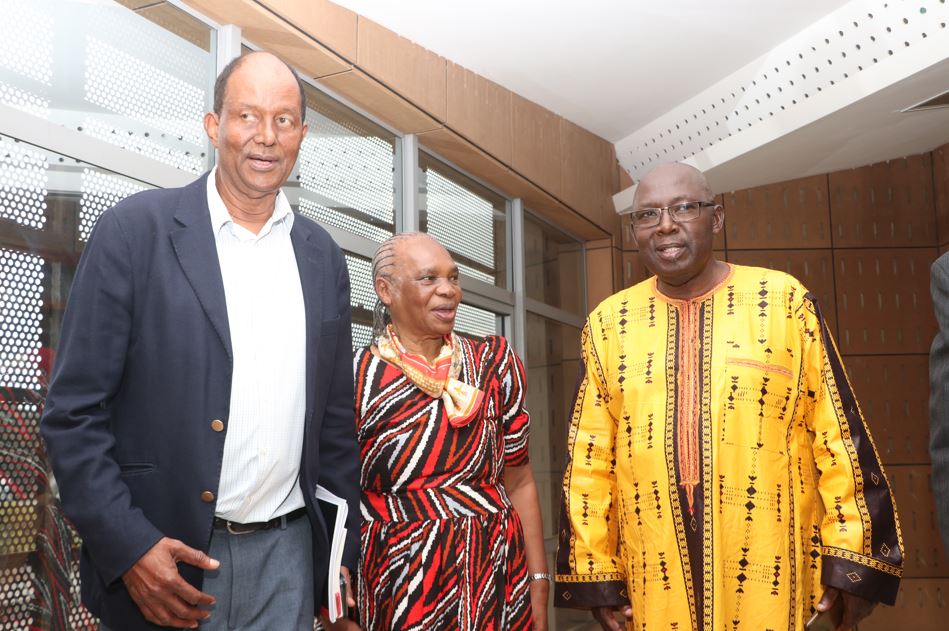 Kamukunji MP Yusuf Hassan (left), Wahu Kaara and author George Gona at the launch of a book on Wahu's life at the University of Nairobi on December 19, 2024. (Photo: Justine Ondieki)
Kamukunji MP Yusuf Hassan (left), Wahu Kaara and author George Gona at the launch of a book on Wahu's life at the University of Nairobi on December 19, 2024. (Photo: Justine Ondieki)
Wahu's friends from childhood, Kibasha Gathu and Rebecca Ruara, concurred with the accounts in the book, narrating how their friend was highly spirited from childhood.
Country's liberation
Kamukunji MP Yusuf Hassan who was the chief guest gave a detailed chronology of the struggle for freedom and liberation in the country.
Yusuf narrated how the events around the colonial period that saw the rise of the Mau Mau Movement changed the life of Wahu who could not stand injustice by colonial oppressors.
"Events around Mau Mau shaped the life of Wahu Kaara, in terms of her character and personality. Although she grew up in a privileged background, she resisted the benefits she enjoyed as a daughter of a wealthy family," noted Yusuf.
The lawmaker shared nostalgically about the oppressive past regime that detained critics unlawfully. He talked about arbitrary arrests, loneliness and resolve to have a better country by Wahu and others at a time when silencing dissenting voices was the norm.
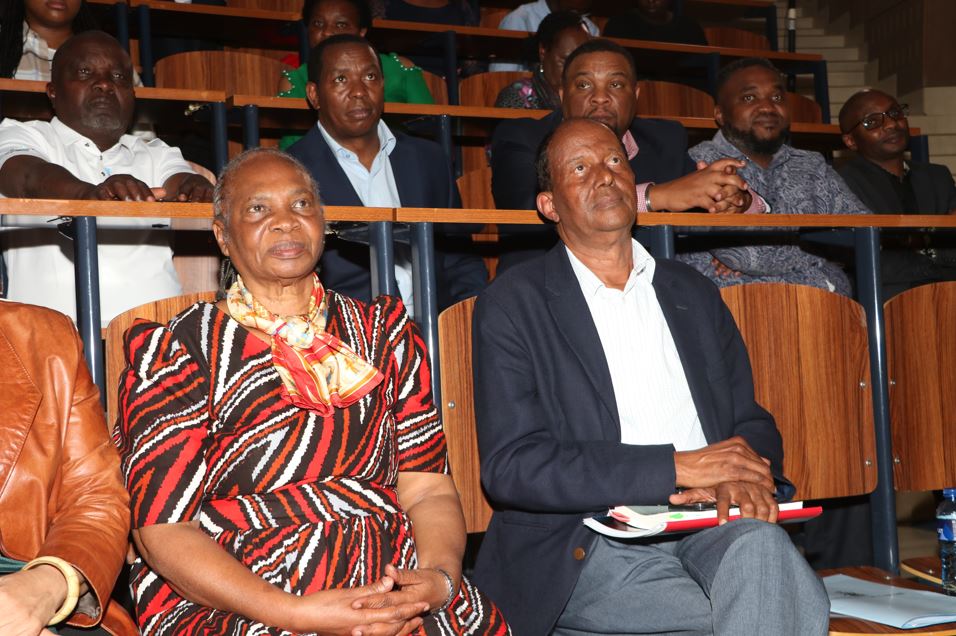 Wahu Kaara and Kamukunji MP Yusuf Hassan at the launch of a book on Wahu's life at the University of Nairobi on December 19, 2024. (Photo: Justine Ondieki)
Wahu Kaara and Kamukunji MP Yusuf Hassan at the launch of a book on Wahu's life at the University of Nairobi on December 19, 2024. (Photo: Justine Ondieki)
He narrated how the demand by native Kenyans for the return of their lands in Central Kenya and the Rift Valley, and for justice from the colonial state was about dignity and self-determination. The anti-colonial struggle, like other subsequent struggles in Kenya against an oppressive state, was about living a life that is not determined by the willfulness and arbitrariness of those in power.
Wahu herself electrified the audience by narrating her struggles, noting that it demanded an undeviating focus and energy. She comes across as an individual who has always been focused. Considering that she grew up at a time when the colonial system still segregated Kenyans based on race and socioeconomic difference, encounters at home, in the village or at school taught her the need to be vigilant lest one end up reproducing the oppressive colonial structures.
Later in life, Wahu could have chosen to simply settle in the comfort of her wealthy family's very predictable life. But she declined. She fell in love with a man who came from a poor family; she chose to fight for the rights of her people by subscribing to and promoting progressive or leftist politics at the university, an enterprise in which her biographer describes her as "the only woman around an all-male college underground enterprise".
Wahu's view of politics and governance, one which rejects racism, ethnocentrism, gender discrimination, social class differentiation, capitalist exploitation, political oppression and social injustice is founded on the experiences of the community she was born into and grew up in, and her undying desire for progress.
Top Stories Today
